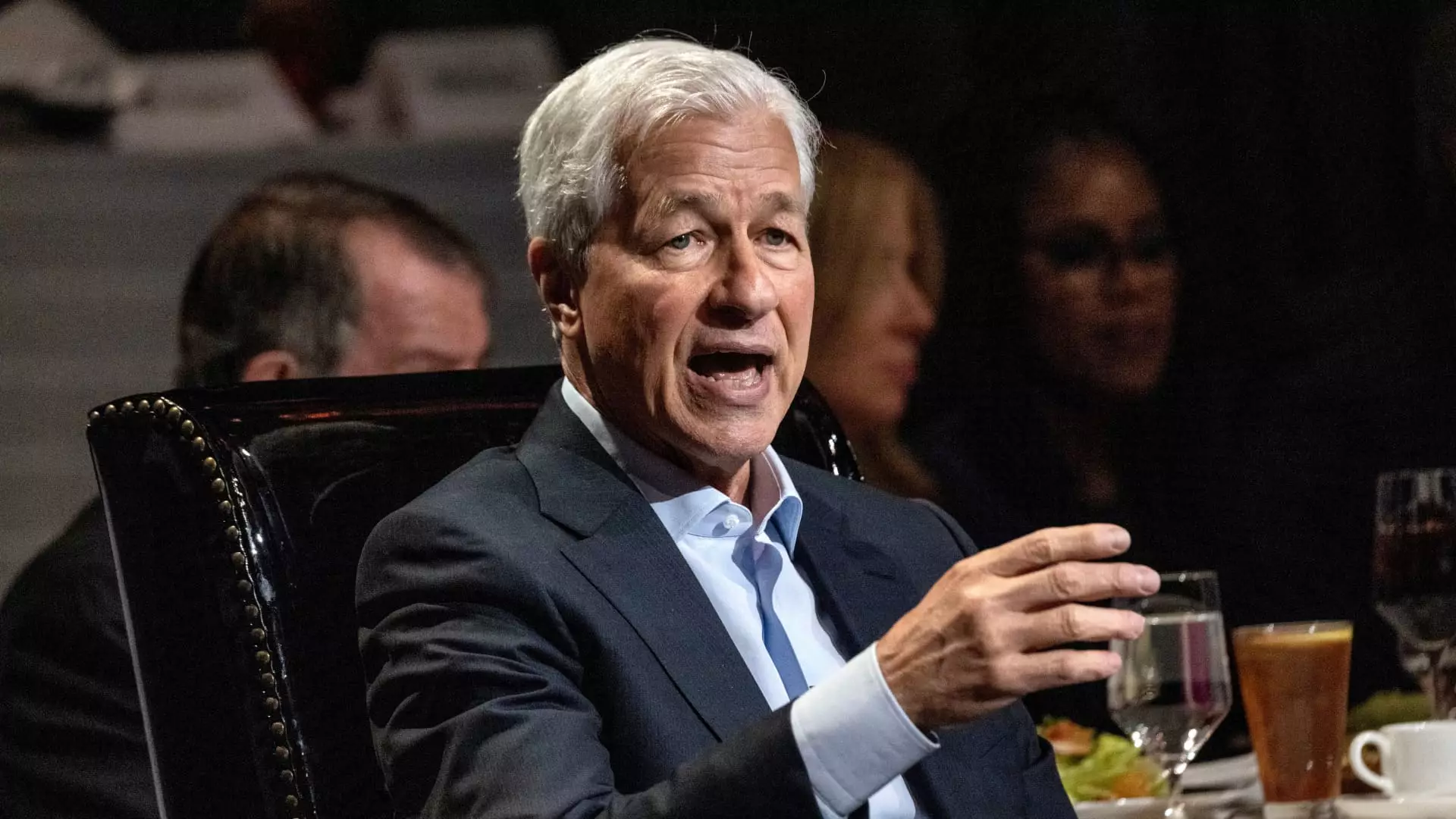JPMorgan Chase recently announced its second-quarter earnings, which surpassed analysts’ expectations, particularly in the area of investment banking fees. The bank reported a 52% increase in investment banking fees from the previous year, totaling $2.3 billion. This surge in fees contributed to the overall revenue of $50.99 billion, exceeding the estimated $49.87 billion.
Earnings for the second quarter stood at $4.26 per share, adjusted, compared to analysts’ estimates of $4.19 per share. The total earnings for the period reached $18.15 billion, marking a 25% increase from the previous year. CEO Jamie Dimon highlighted the strong performance in the investment banking sector, as well as the positive equities trading results, which drove the revenue up by 20%.
Although JPMorgan Chase reported impressive financial results for the second quarter, CEO Jamie Dimon expressed caution about potential future risks. Dimon mentioned concerns about higher-than-expected inflation and interest rates, as well as the current geopolitical situation, which he described as potentially the most dangerous since World War II. These uncertainties could impact the global economy in unforeseen ways.
While the investment banking and equities trading segments performed well, JPMorgan Chase faced challenges in managing credit losses. The bank set aside $3.05 billion for credit losses in the quarter, surpassing analysts’ estimates. This provision suggests that JPMorgan anticipates an increase in borrower defaults in the future, particularly in its credit card business. The rise in charge-offs and loan loss reserves reflects the bank’s proactive approach to mitigating potential risks.
Following the announcement of the second-quarter results, JPMorgan Chase experienced a 2% decline in its stock price during morning trading. Despite this, CFO Jeremy Barnum emphasized that the bank continues to see a healthy consumer base, with some weaknesses in the lower-income segment. Barnum noted that the increase in card reserves was primarily driven by rising balances, and he characterized the overall charge-off situation as a sign of normalization rather than deterioration at this point.
JPMorgan Chase’s strong performance in the second quarter, particularly in investment banking fees and revenue growth, highlights its resilience in the face of economic challenges. While the bank remains vigilant about potential risks, such as inflation and interest rate fluctuations, its proactive approach to credit management positions it well to navigate future uncertainties. Despite market fluctuations and challenges in the consumer segment, JPMorgan’s solid financial foundation and strategic decision-making continue to underscore its position as a leading financial institution in the global market.

